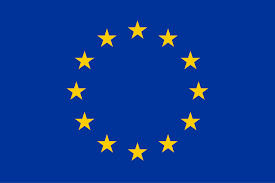Personal Income Tax in the UAE: a unique advantage for workers
The United Arab Emirates (UAE) has long been an attractive destination for expatriates, business owners, and investors due to its tax-free environment. Unlike many other countries, the UAE does not impose a personal income tax on individuals’ salaries or wages. This is one of the major factors that draws professionals and skilled workers to the country. In this article, we will explore the concept of personal income tax in the UAE, why the country is tax-free, and how this impacts the economy and workers.
No Personal Income Tax in the UAE
In contrast to many nations around the world, the UAE does not levy a personal income tax on the salaries of its residents. Whether you are working in Dubai, Abu Dhabi, or any other emirate, you will not have income tax deducted from your paycheck. This is in stark contrast to countries such as the United States, the United Kingdom, and much of Europe, where personal income tax rates can be quite high.
How does the UAE fund its government and public services?
Without personal income tax, the UAE government generates revenue through other forms of taxation and revenue sources:
- Corporate Taxes: While individuals don’t pay income tax, businesses in the UAE are subject to corporate taxes, especially in the oil, gas, and petrochemical industries. Multinational corporations and businesses in certain sectors may also be required to pay taxes, although many operate within free zones where corporate taxes are minimal or nonexistent.
- Value Added Tax (VAT): In 2018, the UAE introduced a 5% VAT on most goods and services. This consumption tax has become a significant source of revenue for the government, compensating for the absence of income tax.
- Tourism and Real Estate: Revenue from the booming tourism and real estate industries is also a crucial source of income for the UAE government. Dubai, for example, has an extensive network of luxury hotels, shopping malls, and entertainment venues that contribute substantially to the economy.
- Excise Tax: The UAE has implemented an excise tax on products that are harmful to health, such as sugar-sweetened beverages, tobacco, and energy drinks. This also contributes to government revenue.
- Government Investments: The UAE has extensive sovereign wealth funds, with significant investments in global markets and property. The returns on these investments provide another source of income for the state.
Benefits of No Personal Income Tax
The absence of personal income tax offers several benefits for workers and businesses in the UAE:
- Higher Disposable Income: Employees working in the UAE can keep more of their earnings since there is no personal income tax to deduct from their salaries. This increases their disposable income, allowing them to save or invest more.
- Attracting Global Talent: The UAE’s tax-free income policy makes it an attractive destination for expatriates. Many skilled professionals from around the world, particularly from India, Pakistan, the Philippines, and Europe, move to the UAE for the opportunity to earn a higher income without worrying about paying significant taxes on their salary.
- Increased Investment: The lack of income tax encourages individuals and families to invest in assets like real estate and stocks, as they retain a larger portion of their earnings. The UAE has become a hub for property investment, and many foreigners choose to buy real estate in Dubai and Abu Dhabi.
- Business Growth: For entrepreneurs and business owners, the absence of personal income tax means that they can reinvest their profits or take home more income, thus fostering innovation and business growth.
The role of expatriates in the UAE’s economy
Expatriates make up a significant portion of the UAE’s workforce, particularly in sectors such as construction, healthcare, finance, engineering, and hospitality. The country’s ability to offer a tax-free income is a major factor in attracting talent from all over the world. Many expats are drawn to the UAE for the opportunity to earn higher salaries and save more of their income compared to their home countries.
The UAE’s expatriate-friendly policies, including no income tax and attractive salary packages, have helped the country become a global economic powerhouse. Expatriates working in the UAE benefit not only from the absence of personal income tax but also from a high standard of living, modern infrastructure, and a multicultural society.
Impact on the UAE economy
The lack of personal income tax has had several positive effects on the UAE’s economy:
- Attraction of Global Talent: As a tax-free country, the UAE attracts a wide range of international professionals, contributing to the country’s economic diversification. Skilled labor is key to the growth of sectors such as technology, finance, tourism, and renewable energy.
- Economic Growth: The increased disposable income of individuals encourages spending and investment in the economy, contributing to economic growth. The high level of expatriates spending in sectors like real estate, education, and healthcare bolsters domestic demand.
- Tourism and Retail: The tax-free environment also contributes to the thriving tourism industry in the UAE. The country’s luxury shopping, world-class hotels, and iconic attractions like Burj Khalifa and Palm Jumeirah draw millions of visitors, boosting the economy and creating jobs.
- International Investments: With lower taxes and business-friendly policies, the UAE has become a hotspot for foreign direct investment (FDI). This influx of capital from foreign businesses further stimulates economic growth and job creation in a variety of sectors.
Challenges of No Personal Income Tax
While the lack of personal income tax offers significant advantages, there are some challenges and considerations for residents:
- Cost of Living: The absence of income tax does not mean that living in the UAE is cheap. The cost of living—especially for housing, schooling, and daily expenses—can be high, particularly in cities like Dubai and Abu Dhabi. However, many expatriates still find the trade-off worthwhile due to the higher disposable income.
- Reliance on Other Taxes: The UAE’s reliance on other forms of taxation, such as VAT and corporate taxes, can place additional financial burdens on consumers and businesses. These taxes, while low, contribute to the country’s revenue in the absence of personal income tax.
- Economic Fluctuations: The UAE’s economy is still somewhat dependent on oil revenues, which can be volatile. The government’s efforts to diversify the economy through various sectors like technology and tourism are crucial for long-term stability, but the reliance on oil revenues still poses some risk.
Conclusion
The no personal income tax policy in the UAE is a major factor contributing to its appeal as a destination for expatriates, entrepreneurs, and global talent. It has helped the country maintain a competitive edge by attracting skilled workers, fostering innovation, and driving economic growth. While the cost of living remains high, the tax-free income provides individuals and businesses with the opportunity to earn and save more. As the UAE continues to diversify its economy, the absence of personal income tax remains a key factor in its ongoing success and global appeal.


%402x.svg)
%402x.svg)


